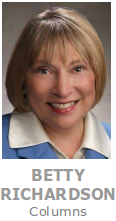
Baby-boomer parents who ever read bedtime stories to their children often delighted in reading books by “Dr. Seuss.” They had a lyrical, often rhyming quality to them and the accompanying illustrations added to the joy.
If Governor C.L. “Butch” Otter truly loves Idaho, and wants to have some kind of noteworthy legacy, its time he took his cue from Marvin K. Mooney and exits stage right. He should resign and turn the governorship over to his loyal Lt. Governor Brad Little.
The positive reasons are many.
· It would make Little the incumbent and give him a leg up over First District congressman Raul Labrador in next May’s primary.
· It would provide Little with a legislative session to show what he could do for the state and his ability to work with leadership.
· Little would carry-on some of the Governor’s initiatives, most especially a continuation of restoring educational funding.
· It would give Little the opportunity to demonstrate his knowledge of the issues as well as his knowledge of state agencies, and that he knows how to instill positive response.
· Little is heads and tails above all the wanna-be’s in terms of qualifications. No other Republican nor is there any Democrat more prepared to take over.
· Having accompanied Governor Otter on almost all his “Capitol For A Day” visits, Little knows Idaho and almost every single community across this state better than any of the others.
· Little is the best, one-on-one retail campaigner of the lot.
There are also some negative reasons for Otter to abdicate:
· Otter’s office and his cabinet are mostly in “glide mode” - doing little or nothing as they wait to see who the next governor will be.
· Its obvious, given the snafus and turmoil coming from the governor’s office of late that Otter’s hand on the steering wheel has lessened considerably. Some say Otter is just mailing it in, that his heart is no longer in administering or managing.
· Labrador, given his prominence in the Freedom Caucus and their decisions that so vexed President Trump, will find that the current Administration will not work with him (they take names and keep enemie’ lists). Little will be able to work with the Trumpsters.
· Little listens and works to bring people together by fleshing out what they agree upon first. Labrador is an ideologue with pre-conceived thought of his own as to what has to be done.
With apologies to Dr. Seuss here is a revised version of his classic. “Clement Leroy” is the beginning of Governor Otter’s full name:
“The time has come/The time is now.
Just go. GO. GO! I don’t care how.
You can go by foot. You can go by horse or cow.
Clement Leroy, will you please go now!
You can go with your Tony Lamas’.
You can go on your ATV.
You can go with your stetson on.
But please go. Please.
I don’t care. You can go with your chuck wagon.
You can go on your mountain bike.
If you like you can go in your tennis shoes.
Just go, go, GO! Please do, do, DO!
Clement Leroy, I don’t care how.
Clement Leroy, will you please GO NOW!
You can go in a surrey. You can go by canoe.
You can go in the state cadillac, if you wish.
If you wish you may go by a wolf’s tail that you shot at and didn’t miss/Or stamp yourself and go by snail mail.
Clement Leroy! Don’t you know the time has come
To go, GO, GO!
Get on your way, Clement Leroy! Give the office to Brad Little today! I don’t care how you go, just GET!
Butch, Butch, Butch! Will you leave the office?
Clement Leroy Otter, I don’t care HOW!
Clement Leroy Otter, will you please GO NOW!
I said GO and GO I meant. . . .
The time had COME,
So Clement Leroy Otter WENT!







